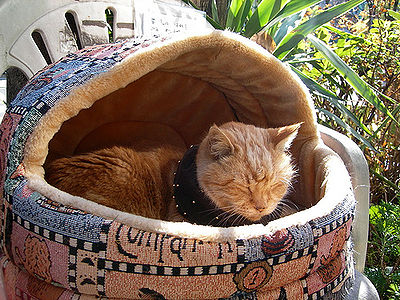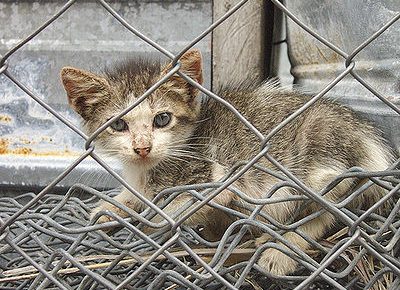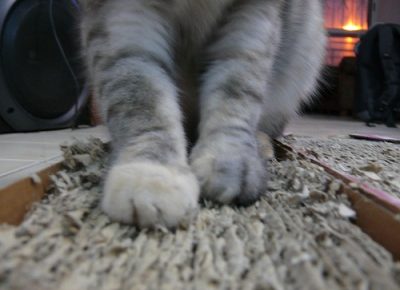
Perhaps we can take a lesson from older cats. They are quieter, love attention and are great companions. They take the time to “smell the roses” and leave their younger counterparts to their antics.
When you notice these signs of aging in your cat, it’s probably time for a visit to your vet. Your vet will check your cat thoroughly – heart, lungs, eyes, ears, teeth and weight. Ask your vet how often your aging cat should be vaccinated and what is appropriate to use against fleas and ticks.
Since your cat is not as active as it once was, pay particular attention to diet. If your cat has a tendency to be overweight, you can feed a bit less of the regular food. If there is a problem chewing and your cat’s teeth and gums have been checked, try wetting the kibble to soften it. You can add canned food to the diet to make chewing easier.
Cats usually choose their own special sleeping spot. But for an older cat, warmth is important. If your cat sleeps on your bed, it’s not a problem. If not keep your cat in a comfy bed nearby. Very often senior cats will cry out at night and a reassuring word or gentle pat from you is very welcome. Your cat will enjoy the attention and you’ll find it very calming too.
Many older cats have difficulty grooming themselves. You can help by gently brushing and combing the fur more often so that it doesn’t become matted or dirty. Brushing will also help stop fur balls forming. For dirty areas like under the tail, cat wipes are available or use a warm, wet cloth. You might want to trim the fur in that area to make it easier to clean. Don’t forget to trim your cat’s nails. They may still use a scratching post but not as often.
Cats enjoy sitting and jumping up on high places. Although most cats remain active even in their senior years, they may find jumping difficult. You can help by placing stools or a ramp near their favorite perches.
Usually cats mellow with age. They will want to spend more time with you. If however, you notice any physical or behavioral changes, these should signal that a visit to the vet is due.
And give your cat lots of love – the #1 ingredient for a long, happy, healthy life.
Related Article”



